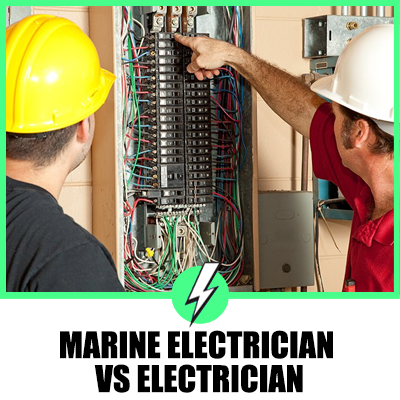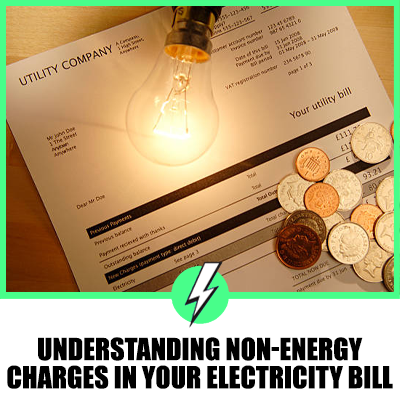Marine Electrician Vs Electrician
How does a marine electrician differ from a land-based electrician who may be working in your home?
The difference is water! Water and electricity don’t mix, so there can be stricter rules for a marine electrician. In some ways, the marine electrician is similar to a land-based electrician, but boats and ships contain sophisticated equipment that requires special knowledge.

Contents
What is the life of a marine electrician?
Varied and challenging. The marine electrician has a lot of responsibilities, from repairing wiring and replacing faulty components to repairing radios and navigational systems onboard a large vessel.
However, the electrician’s roles are being absorbed into a more all-encompassing ships engineer role, but the electrical side is still extremely relevant.
There are some similarities between land-based electricians and their seagoing counterparts. You can imagine the marine electrician working onboard a cruise liner is a busy person and works as part of a team in a floating hotel.
Will you just work as an electrician onboard a ship? No, you will possibly be a firefighter and have first aid training.
The ship’s crew has to be prepared for anything and, as such, has a broad range of safety training.
What is the voltage on cruise ships?
Cruise ships use 3 phase 440 volts for their main electricity supply. Most folks don’t realise that cruise ships use electricity to power their ship’s propulsion.
Yes, some generators use diesel fuel to generate the electricity distributed across the whole ship, mainly as a 60hz power supply.
Why is high voltage used onboard ships nowadays?
The power requirements of ships are enormous, and the demand is around the clock. The more equipment and a high demand require the use of high voltage electricity.
For guests onboard a cruise liner, the electrical system will be the same as their home electrical system, so they can use their electrician gadgets without damage.
How do you become a marine electrician in the UK?
You have a few options, but first, you need to have decent GCSE grades in maths and physics and at least 3 other subjects unrelated to the job.
You can join the merchant or Royal Navy and enrol on the electrical courses. You will be well trained within either service and will have exemplary mentors.
You will be paid while training and be part of a cohesive team regardless of which service you choose to sign up to.
You can search for an apprenticeship with a boat builder’s yard. Yes, the UK still has boat builders, and you will not be surprised to read that most of these jobs are coastal.
There are independent academies you can apply to join and pay for an intensive training course over 12 months.
Are marine electricians always required to work at sea?
No, as a marine electrician, you can be land-based and work in a shipyard. Many ships come into port for repairs, and you will be working while predominantly on land.
Many luxury yacht builders in the UK, such as Princess (based inland, Stourbridge West midlands), sunseeker and many more, take on apprentice electricians to work on their high-end motor yachts.
Do you have to live by the coast to be a ship electrician?
No, but it helps for certain jobs. Boats are sailing the rivers and canals of the country, and people own boats that they tow around for recreational purposes. Theory all have electric circuits and electronics onboard that inevitably need repairing.
Can a land electrician work on boats?
Yes, a land electrician could work on a boat or ship with additional training. The wiring is similar to commercial and industrial wiring, and boats use consumer boards like homes.
However, the land-based electrician has limited skills for seafaring, and his skills will stop at wiring and troubleshooting.
A ship electrician or marine electrician will be trained in electronics. Seagoing ships of all sizes have sophisticated radar systems and navigation to safely arrive at their intended destination.
If not trained, a land-based electrician would struggle with this type of specialist equipment.
What is marine electrician duty?
As a marine electrician on duty, you will be working in the engine room monitoring the ship’s electrical supply. You will be working on deck or top side troubleshooting and replacing faulty equipment.
Your shift pattern or duty will be dependent on the size of the ship’s crew, but you will undoubtedly be part of a team that has to work closely together to keep the ship’s electrical system working.
Not all marine electricians work on ships?
There is a lucrative industry offshore working on oil and gas rigs worldwide. Electricians are in high demand, and the pay is famously high with shift rotations that can mean you only work half of the year while being paid for the other half!
Yes, you need special training and an understanding of intrinsically safe electronics and EX training, but the earring is high once you have this.
As a rig electrician, you will need to keep current with safety procedures and biome re-accredited yearly in evacuation procedures and helicopter underwater evacuation.
If you can swim, it’s not a problem, and it brings additional excitement and experiences to the job.
How much does a ship’s electrician make when qualified?
It varies from company to company and if you are away from home for long periods while at sea.
The average salary in the UK for a marine engineer at sea is around 45 k per annum and rises the more qualifications you have.
You can reach officer level onboard a ship, which increases your salary.
Offshore marine electricians earn close to 100 k per annum. It’s a position well worth investigating, and with the turmoil in today’s oil and gas markets, offshore work will be increasing substantially in the coming years.





